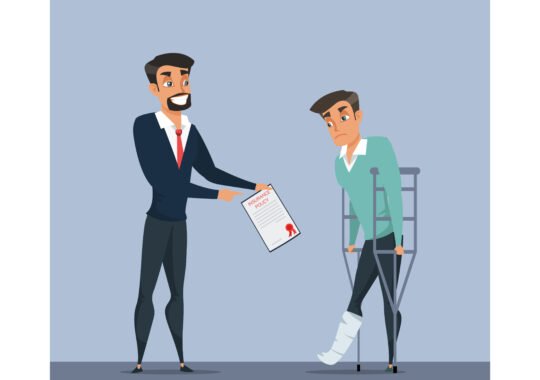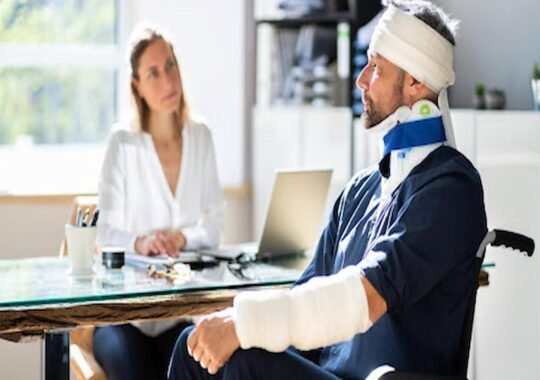Key Takeaways
- Immediate, calm action after an accident can protect health and future claims.
- Gathering thorough evidence at the scene supports accurate reporting and decision-making.
- Medical attention is essential, regardless of how minor injuries may seem initially.
- Documenting your injuries, symptoms, and challenges paints a clear picture for insurers and possible legal actions.
- Trusted information and professional guidance are available every step of the way.
Safety First: Stay Calm & Check for Injuries
In the chaotic moments following a personal injury accident, instinct often pushes people to act impulsively or attempt to assess property damage before tending to themselves. However, taking a deep breath, remaining calm, and immediately checking yourself and those nearby for harm can make a crucial difference. If you feel dizzy, weak, or disoriented, avoid moving until you are sure it’s safe. If possible and safe, move away from hazards—such as roadway traffic, falling objects, or unstable ground—to reduce the risk of further injury.
It can be helpful to quietly scan your body and surroundings for any apparent wounds or signs that you—or someone around you—needs urgent medical attention. Even if someone appears delicate, subtle or internal injuries (like head trauma or broken bones) may not be visible. Assessing the situation gives you a sense of control and helps prioritize everyone’s immediate safety. If you are unsure about your rights or next steps after an accident, consulting a personal injury attorney early can help clarify how to proceed and what protections are available.
Call for Help: Contact Authorities
Once immediate danger has passed and you’ve done a preliminary check for injuries, calling for emergency help is vital. Dialing 911 or the local emergency number brings trained professionals to the scene who can provide life-saving medical care and ensure the incident is officially documented. Even in cases where injuries do not appear severe, some conditions, such as concussions, whiplash, or internal bleeding, might only become evident hours or days later. Officially reporting the accident provides a trustworthy event record for future insurance or legal documentation.
Involving the police or other authorities can help ensure that traffic is redirected if you’re in a roadway accident or that unsafe conditions are quickly addressed. Having an official report from authorities creates a fact-based record for all parties and supports your version of events with unbiased evidence. According to national safety experts, rapid emergency response is one of the most critical factors in preventing prolonged injury and establishing responsibility in accidents.
Collecting Evidence at the Scene
If you’re able, start gathering evidence while at the scene. Photographs and videos are among the most convincing pieces of evidence—snap images of everything from wide shots of the accident area to close-ups of injuries, vehicle damage, environmental hazards, skid marks, or broken equipment. Record voice memos of initial thoughts or pain levels before the details fade from memory, if possible. Getting witnesses’ names and contact details is critical, as their accounts can back up your own and add credibility to your claim.
- Take pictures from multiple angles, including distances and close-ups.
- Save any bits of evidence that might be relevant (like broken equipment, road debris, or torn clothing).
- Make notes on the weather, road conditions, lighting, and anything unusual.
These steps, while simple, can provide clarity for all parties involved when the memory of the incident becomes less sharp over time. Even if the scene feels overwhelming or intimidating, documenting it immediately can be a tremendous asset later.
Seek Medical Evaluation Promptly
No matter how minor you believe your injuries to be, never gamble with your health or future well-being. Many symptoms from car accidents, falls, or workplace mishaps develop hours or days after the incident. Getting a comprehensive medical evaluation as soon as possible gives your body the chance to heal, ensures you are not overlooking dangerous hidden injuries, and connects your symptoms directly to the accident on record.
Attend all recommended follow-up appointments and keep any discharge papers, imaging, or prescriptions provided. Furthermore, insurance professionals and courts may use delays in medical evaluation as a reason to dispute or deny coverage. As the Centers for Disease Control and Prevention highlights, conditions like traumatic brain injury and soft tissue trauma fare much better when detected and treated early, emphasizing the importance of seeking prompt care after any jolt to your body or head.
Documenting Your Experience
Keeping detailed records in the days, weeks, and months after an accident can be a lifesaver. Write down your pain levels, sleep disruptions, emotional changes, doctor visits, and moments where your daily activities are limited due to your injury. Track expenses, receipts, and even mileage to and from medical appointments. These notes fill in the blanks that photos or police reports cannot capture and provide a complete picture of how the injury impacts your life daily.
An organized binder or digital folder—containing police reports, doctor’s notes, prescriptions, therapy visits, and correspondence with insurers—can help you quickly reference information if disputes arise. Consistent documentation also supports your memory, ensuring that you can lay out the facts clearly and confidently every time you speak to officials, insurers, or a legal professional.
Notifying Insurance and Employers
Contact your insurance company immediately once your health is checked and the scene is documented. Most policies require you to report an accident or injury immediately, and waiting could jeopardize your benefits. In work-related incidents, notify your employer or human resources department without delay, reporting the details and circumstances factually.
Avoid taking the blame or speculating about fault in your conversations with insurers or company representatives. Answer questions clearly and stick to the facts you have recorded. Doing so can help prevent misinterpretation and ensure you receive the support and compensation you deserve. Many insurance companies will request supporting documents or follow-up statements, so keep all files and records ready.
Exploring Legal Options
After the immediate aftermath of a personal injury accident, you may face a maze of insurance rules, medical bills, and documentation. For some, a fast and fair settlement is possible through insurance alone. However, others find that full financial recovery—covering lost wages, medical costs, future rehabilitation, and even pain and suffering—may take negotiating with insurance adjusters or exploring legal avenues.
Consulting with a personal injury attorney can help clarify your options and provide strategies that give you the best chance at a positive outcome. Many cases are resolved through negotiation rather than trial, but knowing when to stand your ground is just as important. Legal advice also ensures essential deadlines are not missed, evidence is preserved correctly, and insurance regulations are followed precisely to avoid unnecessary stress or forfeiture of compensation.





